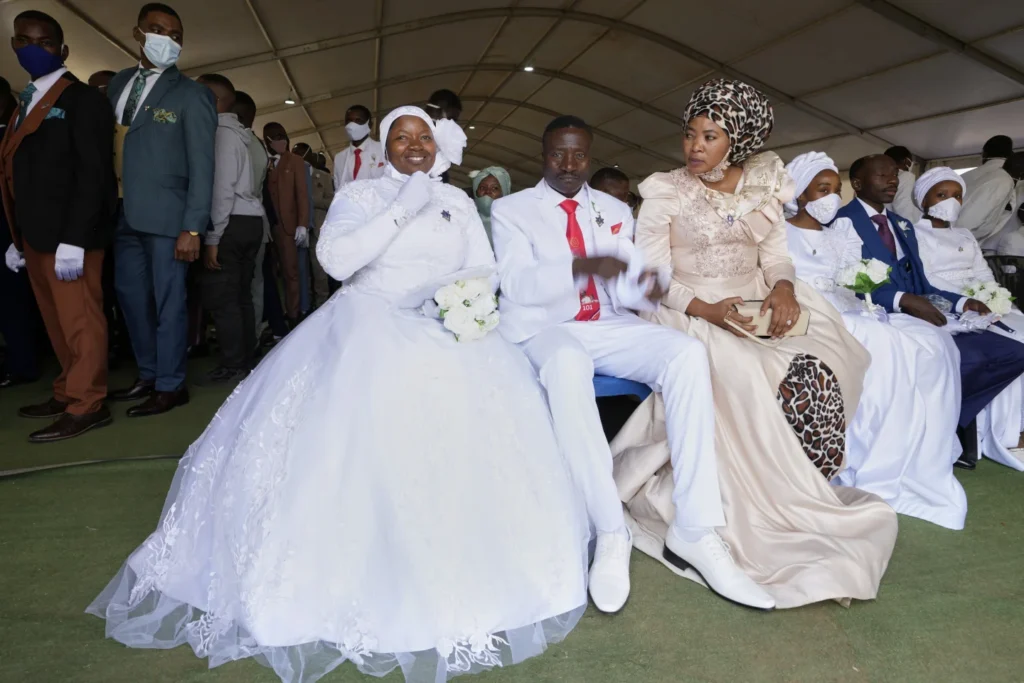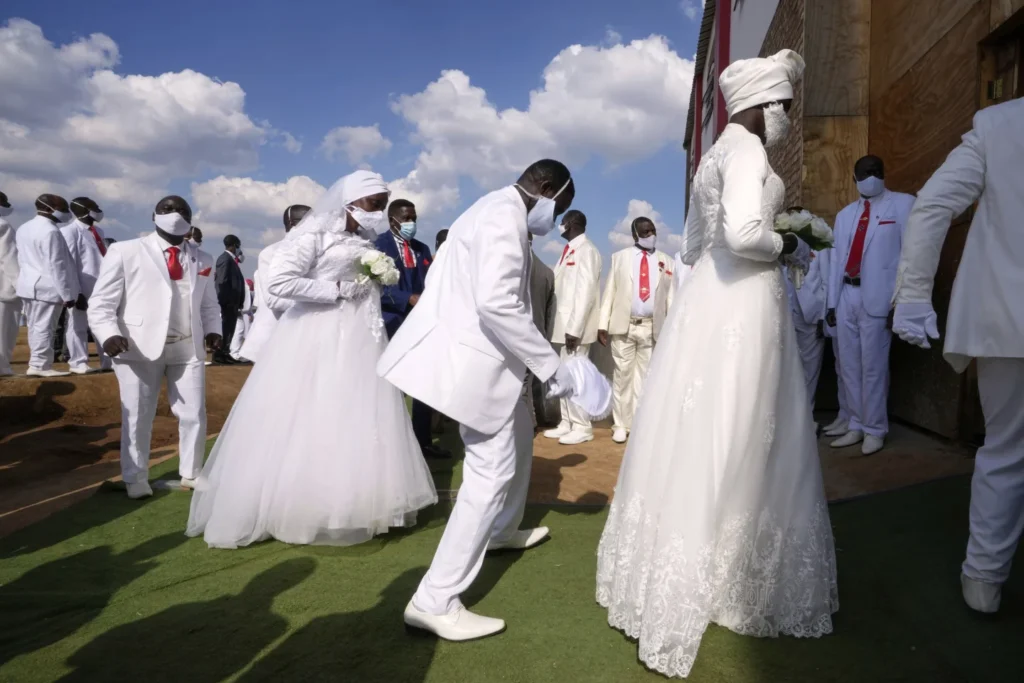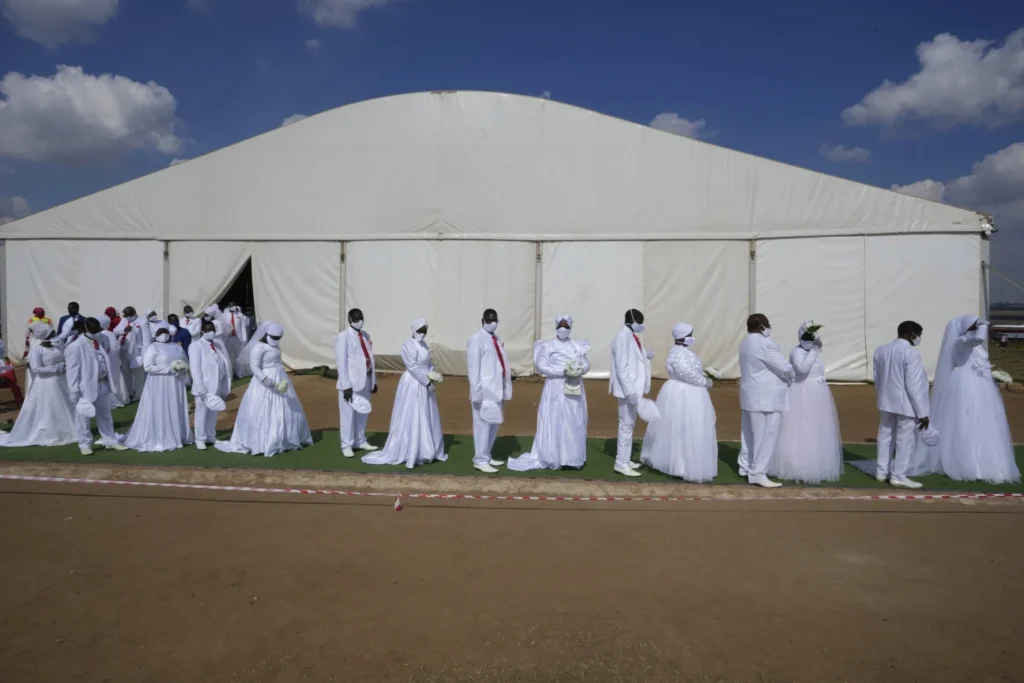Heidelberg, South Africa – In a striking display of faith, tradition, and community celebration, the International Pentecost Holiness Church (IPHC) hosted mass wedding ceremonies on Easter Sunday for approximately 3,000 individuals, including numerous polygamous marriages, at its sprawling headquarters near Johannesburg.

The Easter wedding event, held annually by the church, marked its largest gathering of matrimonial unions to date, far surpassing last year’s total of about 400 couples. According to church spokesperson Vusi Ndala, the surge in participants was driven by a significant number of grooms marrying multiple wives simultaneously, with some entering their sixth or seventh marriage during the occasion.
“Polygamy is not only embraced but held in high regard within our congregation,” Ndala said.
The IPHC, established in the early 1960s as an African-initiated Pentecostal movement, blends Christian doctrine with indigenous African cultural practices. The church’s integration of polygamy, a tradition prevalent in many African societies, reflects this unique spiritual and cultural fusion.
Polygamy is legally recognized in South Africa when registered as a customary marriage, allowing religious communities like the IPHC to formally observe the practice under national law.
“This Easter celebration represents both a spiritual commitment and a cultural affirmation for our members,” Ndala explained.

The weddings took place in and around the church’s massive dome-shaped headquarters, which can seat up to 60,000 worshippers. White tents were erected on nearby open fields to accommodate the bridal parties, where participants were provided with bridal bouquets, food packages, and bottled water before entering the main building.
Inside the sanctuary, long queues of grooms and brides moved solemnly toward the altar. Many women were dressed in traditional white wedding gowns, while the grooms wore white suits with red ties, creating a powerful visual tableau of unity and devotion.
In many cases, men were accompanied by their existing wives during the ceremonies, as they welcomed new brides into the family under the communal blessing of the church.

The IPHC has become known for such large-scale matrimonial events, particularly during significant religious holidays like Easter and Christmas. Church leaders say the ceremonies are not only about uniting individuals but also about strengthening family structures and promoting collective responsibility within the faith community.
As South Africa continues to serve as a unique intersection between modern law and traditional customs, the IPHC’s mass Easter weddings exemplify how spiritual institutions can navigate complex cultural landscapes while reinforcing their theological values.



